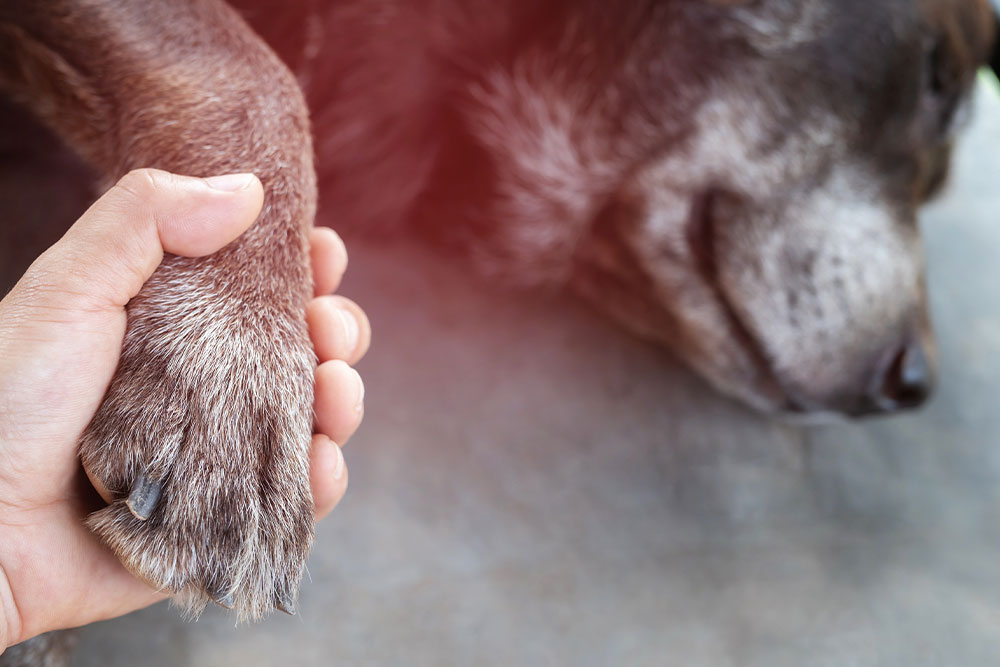Saying Goodbye with Love: Compassionate End-of-Life Care for Pets
Facing the end of a beloved pet’s life is one of the hardest journeys we walk as pet parents. At Stanton Pet Hospital in Stanton, California, we are here to help you navigate this emotional chapter with compassion, dignity, and support. Whether your pet is nearing the end due to age, illness, or a progressive condition, our goal is to help them feel safe, comfortable, and deeply loved—every step of the way.
What Is End-of-Life Veterinary Care?
End-of-life care is a thoughtful, tailored approach to supporting your pet in their final days, weeks, or months. This isn’t about curing illness—it’s about comfort. It focuses on relieving pain, easing stress, and giving your pet the best possible quality of life during their remaining time with you.
This stage may involve palliative care (managing symptoms without curative treatment), hospice-style support at home, and when the time comes, guidance around humane euthanasia. Through it all, our team is here for both your pet and your family.
When Is It Time to Consider End-of-Life Care?
Knowing when to shift from active treatment to comfort care is incredibly difficult. Every pet is different, but you may start to see signs like:
- Ongoing discomfort or pain that doesn’t improve with medication
- Trouble standing, walking, or eating without assistance
- Loss of interest in food, toys, or time with family
- Accidents in the house due to reduced mobility or control
- Breathing difficulties, confusion, or extreme fatigue
- Repeated hospitalizations or declining response to treatment
If you’re seeing any of these signs, you’re not alone—and you don’t have to make decisions alone, either. We’re here to talk through what you’re seeing, help assess your pet’s quality of life, and explore all the options together.
You might find tools like the Animal Welfare Institute’s Quality-of-Life Scale or LSU’s Quality-of-Life Assessment helpful in organizing your thoughts and tracking your pet’s comfort over time. These guides can offer clarity during an emotionally difficult decision-making process.
Managing Comfort at Home
End-of-life support often happens at home, where your pet feels safest. Small adjustments can make a big impact:
- Provide supportive bedding to reduce pressure points
- Use non-slip mats or ramps for mobility
- Keep food and water easily accessible—consider raised dishes
- Assist with hygiene if mobility is limited
- Offer calm, loving attention at your pet’s pace
If eating becomes difficult, options like appetite stimulants, easy-to-digest meals, or assisted feeding (with guidance) may help. Maintaining hydration is also key. Try flavored broths, multiple water bowls on each floor, and cat water fountains to encourage drinking—especially for senior cats.
Pain Management and Symptom Support
One of our top priorities is keeping your pet as comfortable as possible. We may recommend:
- Medications to manage pain, nausea, anxiety, or incontinence
- Subcutaneous fluids to prevent dehydration
- Supplements or soft tissue therapies for mobility and inflammation
- Alternative therapies like laser therapy or acupuncture (depending on your pet’s needs and response)
Our approach is highly personalized, based on what brings your pet comfort and preserves their dignity.
Understanding Euthanasia as a Kindness
Saying goodbye is never easy—but sometimes, it is the most compassionate act of all. When suffering begins to outweigh joy, euthanasia provides a peaceful, pain-free way to let your pet rest.
Our team is here to answer every question—what to expect, how to prepare, and how to know when the time is right. Some families choose a quiet goodbye at home, others prefer the privacy of our clinic. We’ll talk through what feels right for you and your pet.
Learn more from Cornell’s guide on euthanasia for small animals or Colorado State University’s considerations.
Aftercare and Memorial Options
After your pet has passed, there are several options for honoring their memory:
- Private or communal cremation
- Home or pet cemetery burial (check local regulations)
- Memorial items, like paw prints, urns, or donations in their name
We’re here to walk through these choices with you and help coordinate any arrangements you need.
Caring for You, Too
Grief is real, and it’s different for everyone. Allow yourself space to feel it. Talking to friends, family, or a pet loss support group can be incredibly healing. We often recommend resources like:
If you have children, this is an important time for open, age-appropriate conversations. Let them create a memory box, write a letter to the pet, or participate in a memorial.
And remember: other pets grieve too. Keep their routine consistent, and offer comfort and closeness while they adjust.
You’re Not Alone
At Stanton Pet Hospital, we believe that end-of-life care is just as important as every puppy vaccine and senior checkup. Your pet deserves peace. You deserve support. And we are honored to help you through this with grace and empathy.
If you need guidance, even if you’re just starting to wonder what comes next, contact our team or request an appointment. Let’s talk. Let’s plan. And most importantly, let’s make sure your pet is surrounded by comfort, kindness, and the love of the people they trust most.







Leave A Comment